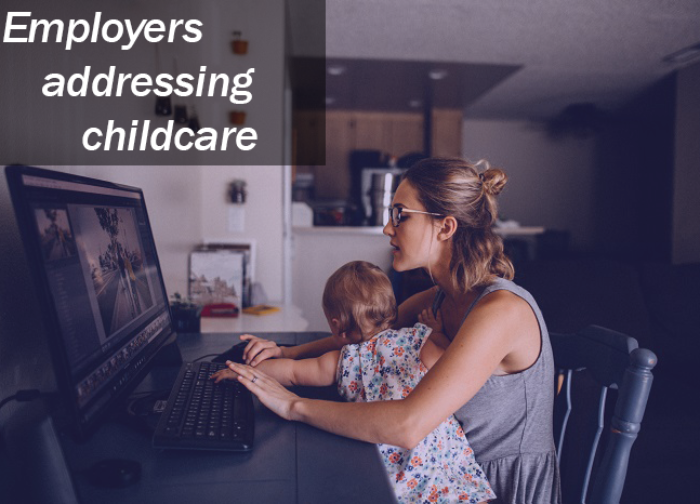
Professional services firm KPMG is joining a growing number of employers beefing up benefits to help support working parents in trying times.
The company is turning to new and enhanced programs to help its employees who are balancing work and family responsibilities, particularly as the new school year begins with virtual and hybrid learning models. Among those benefits are increased backup care, an expanded network of childcare centers, and access to discounted tutoring, academic support and homework assistance.
Related: The childcare crisis is here. What are you doing about it?
The firm quadrupled the number of total backup care uses per dependent for the 2020 calendar year. For those eligible, five additional days of infant backup care also are available. The employer also is giving discounts and access to more than 2,000 childcare centers nationwide.
The Big Four firm also launched a collective and customizable learning experience for school-age children–a program that allows KPMG employees to pool with other parents to find educators to guide in-home or virtual learning for small groups of children, ages 5-18.
Darren Burton, KPMG’s vice chair of human resources, says the enhanced programs are the result of hearing firsthand from employees about the challenges they face in a series of employee surveys and focus groups the company conducted.
“One of the things we heard loud and clear is that while work-life balance is a challenge for everyone right now, it’s a particularly significant concern for parents and caregivers as the new school year begins amid so much uncertainty,” he says. “Once we heard this, we went right to work to identify ways we can provide assistance, by enhancing some of our existing benefits programs and introducing new ones.”
Related: 8 trends in employer support for the childcare crisis
KPMG’s enhancements build upon the family care solutions it already provided, which include discounted nanny placement, tutoring and caregiver databases, and virtual learning experiences. In addition, the firm in March expanded its paid leave policy to help employees who may have unexpected issues related to COVID-19 that prevent them from working, such as caring for themselves or family members. Employees have between 15-25 PTO days annually, depending on employee level.
This leave time is above and beyond any leave to which they otherwise may be entitled.
Working parents have been a priority for many employers during the pandemic, with many firms beefing up programs and benefits to help. Bank of America, for instance, launched a multi-pronged program to help its parental population earlier this year. That program–which included childcare reimbursement–was set to expire Aug. 15, but the banking giant announced last month that it would extend the efforts through the end of the year. Twitter, Sun Life U.S. and John Hancock launched virtual camps for their employees this summer to help working parents occupy their children’s time.
Still, many employers fall short in providing direct support to workers. According to research by the Institute for Corporate Productivity, just 9% of employers surveyed are offering childcare stipends, and about 20% are providing free backup care. Approximately one-quarter of those surveyed provide discounts for childcare, and about one-third have launched emergency-related childcare leave programs because of COVID-19. Of note, much larger percentages of those surveyed said they are considering implementing such programs.
Related: How Bank of America is supporting working parents
More than half of those surveyed, though, say they are looking at ways to retain working parents with specific programs and offerings–a finding that dovetails with recent research from WorldatWork that the pandemic is leading to women leaving the workforce because of childcare challenges.



